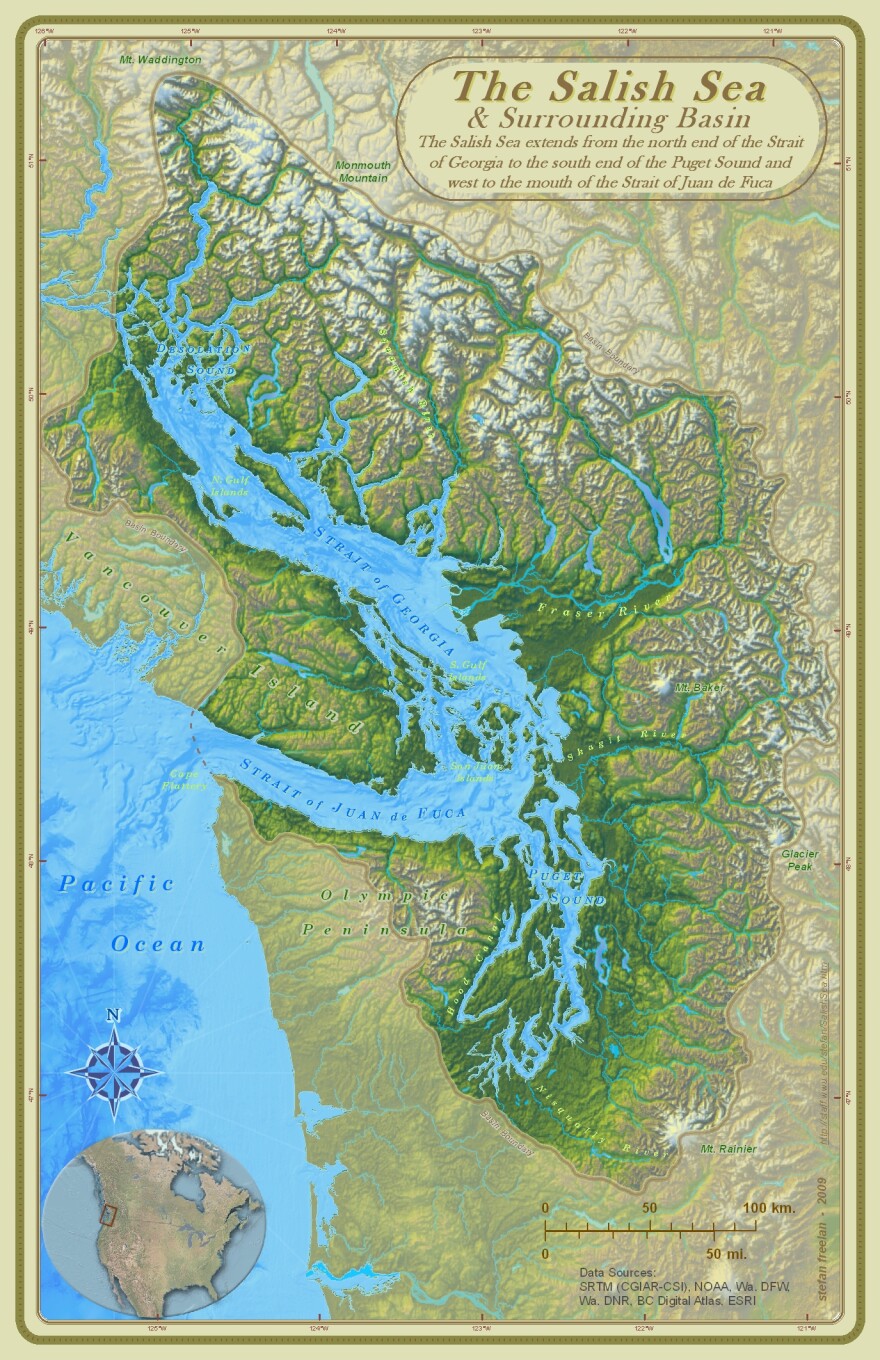A small non-profit in the San Juan Islands has taken the lead in an international campaign to protect the Salish Sea from adverse effects of shipping.
Currently, proposals for 14 new or upgraded export facilities for fossil fuels in British Columbia and five in northwestern Washington could dramatically increase shipping traffic through local waters.
“We’ve found ourselves having to speak up time and time again for these fossil fuel projects that are coming through our waters,” said Stephanie Buffum, the executive director of Friends of the San Juans, a non-profit based in Friday Harbor that has worked to protect quality of life in the area for the past 35 years.
In the last three years, Buffum says the proliferation of projects that threaten the ecosystems and native cultures of the area have reached a tipping point.
“No one sees it more up close and personal than folks out here in the San Juan Islands and Gulf Islands,” Buffum said. “So we’re looking for creative, strategic opportunities to protect our home.”
They are recognized by the International Maritime Organization of the United Nations as a Particularly Sensitive Sea Area, or PSSAs.

That international designation is already in use in 14 areas worldwide, including two in the United States — one in the Florida Keys and one near Hawaii.
Getting that status is a process that allows local governments to harmonize laws across international borders. Buffum says with so many projects going on, it offers the possibility of putting an end to the Whack-A-Mole approach of trying to keep the Salish Sea safe.
“We identified PSSA as a potential tool to help us jump over these individual permits and start to address all of these issues cumulatively.”
She says it could allow for a more comprehensive approach to all kinds of regulations, from where ships are allowed to anchor, to how fast they can travel and how oil spills are reported.
Last year, Friends of the San Juans completed a feasibility report and quickly found the Salish Sea more than meets the criteria.

“These are biologically, culturally rich waterways; some of the most important in the world. And that’s why we’re moving forward with this designation as a Particularly Sensitive Sea Area,” Buffum said.
The group is leading a wide-ranging diplomatic effort to meet with government agencies and non-profits all around the Salish Sea and come up with a list of remedies that will be included in the application to the United Nations. That document must first be signed by both the Prime Minister of Canada and the U.S. President.
They have already raised more than $100,000 toward the effort and are aiming to complete their work before President Obama leaves office.
Buffum says the president’s recent designation of the San Juans as a National Monument bodes well for the international campaign.
If they succeed, less than two years from now, the Salish Sea could become the 15th PSSA in the world.







